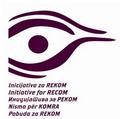Kidnapped Residents of Sjeverin not Recognised as Victims by the State of Serbia
 The Municipal Administration in Priboj has dismissed the requests of three families of kidnapped residents of Sjeverin to be officially recognized as families of civilian victims of war in Serbia. The Humanitarian Law Center (HLC), which filed the lawsuit on behalf of the families of the kidnapped Sjeverin residents, filed a complaint with the Ministry of Labour, Employment, and Social Policy on October 17th, 2012 against the Administration’s decision, noting that it was in violation of the Constitution, laws, and international conventions protecting human rights and pointing out that claims filed by family members of the war crime victims from Sjeverin had been dismissed on the basis of criteria that are not applied in cases of victims of Serbian nationality. The HLC filed its complaints with the Ombudsman, Saša Janković.
The Municipal Administration in Priboj has dismissed the requests of three families of kidnapped residents of Sjeverin to be officially recognized as families of civilian victims of war in Serbia. The Humanitarian Law Center (HLC), which filed the lawsuit on behalf of the families of the kidnapped Sjeverin residents, filed a complaint with the Ministry of Labour, Employment, and Social Policy on October 17th, 2012 against the Administration’s decision, noting that it was in violation of the Constitution, laws, and international conventions protecting human rights and pointing out that claims filed by family members of the war crime victims from Sjeverin had been dismissed on the basis of criteria that are not applied in cases of victims of Serbian nationality. The HLC filed its complaints with the Ombudsman, Saša Janković.






 On the occasion of the International Day of the Disappeared, the Coalition for RECOM calls on the governments of post-Yugoslav countries to break the silence about secret graves, because that silence is the major contributor to the public culture of silence about what happened in the past.
On the occasion of the International Day of the Disappeared, the Coalition for RECOM calls on the governments of post-Yugoslav countries to break the silence about secret graves, because that silence is the major contributor to the public culture of silence about what happened in the past.